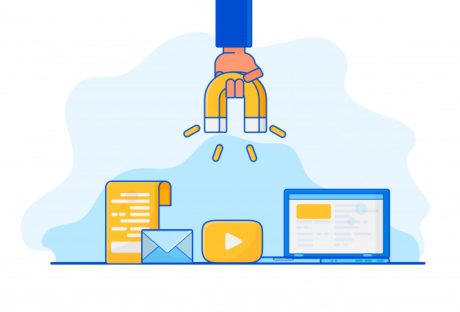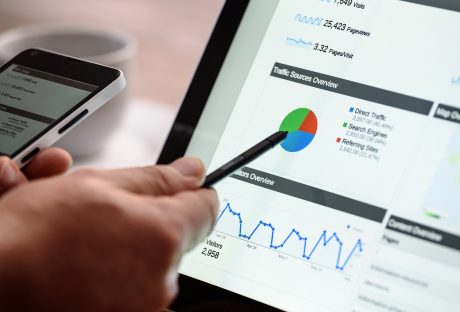SEO is an essential part of running any business with an online presence (which, in this day and age, all businesses should have). Think of SEO like a bright sign with flashing lights, telling people passing by that your business is here and draws them inside to check it out.
However, some businesses will find implementing SEO to boost their site’s rankings easier than others will.
Especially when it comes to businesses in the e-commerce sector, SEO can be quite a challenge. Even if you’ve been researching how to improve SEO for your company, you may not be able to find resources that apply to e-commerce companies.
Playing By Google’s Rules
The goal of any business with an online presence is to rank high enough on Google’s Search Engine Results Pages (SERPs) to be seen by customers. Although this is a challenge for any business, E-commerce businesses will find it especially difficult.
This is because Google prefers websites that rank high on their E-A-T scale, which measures sites based on Expertise, Authority, and Trustworthiness. In other words, Google prefers informational websites over commercial ones and rewards those that highlight genuine knowledge and don’t appear to be trying to make quick money. This criterion is part of Google’s method of quality control.
As an e-commerce business, your website lies in the YMYL (Your Money Your Life) category. This category encompasses websites whose content can affect the reader’s financial, physical, and medical wellbeing. Because the stakes are higher, the scrutiny is higher as well.
YMYL websites with misleading or inaccurate information can trick users into making an uninformed decision, causing them harm. Your e-commerce business fits into this category by allowing customers to make purchasing decisions that can cause them financial harm.
Managing A High Volume of Content
Most e-commerce sites offer listings of hundreds if not thousands of physical and digital products. Product listings are not necessarily written with the utmost care, but Google still parses them like it does any other text on your site, and therefore measures them with its E-A-T criteria.
This can be an issue because, due to the sheer number of product descriptions required, many e-commerce sites rely on automation to update these listings. While automated services can be helpful in some regards, they can also lead to typos, grammatical errors, dead links, inaccurate information, and other mistakes. All of these issues can be detected by Google, lowering your website’s E-A-T score.
Although time-consuming, your best option would be to hire someone whose job is going through every listing individually to update and correct any errors, making sure it meets Google’s standards.
Bouncebacks Based On Loading Time
Your website’s bounce rate is the percentage of users who visit briefly and then leave using the back button or by clicking on an external link without browsing other pages on the same site. While one reason for high bounce rates can be a dull or outdated website, this issue can also be caused by poor hosting.
E-commerce sites often have lots of buttons, listings, and pop-ups. Pages aren’t simple and include many elements. Having so many processes that must run simply to present a page can result in extended load times for users. Unfortunately, most people online are impatient. If your site doesn’t load as quickly as visitors think it should, they’re likely to leave without browsing, let alone making a purchase.
The Google algorithm sees the high bounce rate as a sign that people find no value in your website, so it lowers your ranking and sends fewer people your way, resulting in fewer purchases and reduced revenue. Fortunately, fixing this issue can be fairly straightforward. Either make your website’s landing page (the first page that loads for visitors) simpler to avoid long wait times, or contact your website hosting service and look into upgrading to more powerful servers.
User Reviews
User reviews are a great and almost guaranteed resource for building your E-A-T levels. Google prefers sites that let users review products, as this creates a sense of social credibility and allows people to share feedback, building trust. The more positive reviews your products have, the more Google will boost your website up the SERP.
However, too many negative reviews have the exact opposite effect, hurting your website’s ranking. You can avoid negative reviews using a review posting tool that allows you to read submitted reviews before they are posted.
Knowing Where to Start
When faced with the challenge of implementing SEO as an e-commerce business, deciding where to start can be overwhelming. Google doesn’t give you a gold star for trying, and starting multiple SEO strategies only to quit them midway can even flag your site as suspicious in Google’s eyes.
One way you can get started properly is by using Ahrefs’ Site Explorer to identify SEO opportunities. You can use this particular tool to analyze what competitors are doing in terms of SEO and piggyback off it, or implement a skyscraper method where you do what they’re doing but better. Or you can use it to analyze your own site to find new competitors or broken backlinks. Site Explorer also provides keyword research, backlink profiles, PPC campaigns, and more.
Still, a great tool is only useful in the hands of someone who knows how to operate it. Having dedicated SEO experts focused on boosting your site can have better results in the long run. SEO strategies are multi-faceted, and high-quality approaches are time-consuming.
Staying Up to Date
Google’s algorithms are constantly changing, meaning your SEO strategy needs to change with them. As the owner of an e-commerce company, you’ll need to be particularly flexible and adaptable. Just like posting only a few times on your site and still expecting increasing returns is a flawed strategy, undertaking a half-baked SEO strategy will hurt you more in the long run. Having experts on your marketing team allows you to smoothly ride all SEO waves and grow your website.
Read Also:






















